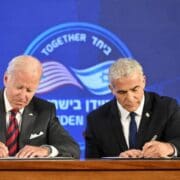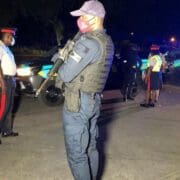Black Immigrant Daily News
News
FILE PHOTO: A boat full of illegal immigrants arrives at Los Iros Beach on November 24, 2020. –
ATTORNEYS for 13 minor Venezuelan children now intend to file legal proceedings in the High Court after the Privy Council has ruled that lawful authority cannot be derived from an unwritten policy as it relates to the detention of children.
Thursday’s ruling of the Privy Council involves a Venezuelan mother and her teenage son who entered Trinidad and Tobago illegally with a larger group in November 2020. It will now serve as a guide for other cases involving the detention of illegal immigrants.
They were escorted out of TT by the Coast Guard but returned days later. They were held again and detained in quarantine and then on a deportation order. The mother also filed a constitutional motion contesting deportation. A deportation order was issued for her alone, but at the time it was argued by the State that the order also covered her child.
On the morning of the hearing of their expedited emergency hearing in the Privy Council on March 16, the National Security Minister issued a deportation order for the teenager. This has not been invalidated by the Privy Council which said that matter was for the local courts to decide. They also left it for the local courts to decide if the mother and son’s period of detention is reasonable.
However, the London Law Lords of Lords Reed, Kitchin, Hamblen, Stephens, and Lloyd-Jones ruled the boy’s detention from December 15, 2020, to March 16, 2022, was unlawful.
In their ruling, the apex court held that the correct interpretation of section 16 of the Immigration Act was that in the absence of a deportation order, there is no power to detain.
“Lawful authority to detain cannot be derived from the respondent’s policy.”
According to the State, it is the ministry’s policy that when a parent and child enter TT illegally, a deportation order against the parent is also taken as a deportation order against the child.
“A policy is not a legitimate external aid to statutory interpretation,” the Privy Council said.
At the appeal, the mother and son’s attorneys Gerald Ramdeen and Tom Richards advanced three grounds of appeal which challenged five points of law that had been struck down by the Appeal Court last July.
Although they were successful on only two grounds of appeal, the Privy Council overturned the Appellate Court’s decision on the five points of law.
The unsuccessful ground dealt with a complaint that any detention must be deemed to be “pending deportation.” The Privy Council did not agree, saying the existence of a temporary impediment to deportation – such as an injunction – did not mean there was no prospect of them being deported.
“There is every prospect of them being deported if the appellants’ constitutional challenge is unsuccessful. As it stands, deportation is still pending, though it may not be imminent…
“It would be an absurd consequence if an injunction granted to prevent the implementation of a deportation order, by a side wind, also had the unintended consequence of bringing the detention of the individual to an end.
“The absurdity of such a consequence would be even more apparent if there was a short period of detention up to the date of the injunction and there was a clear risk of the person absconding or committing further offences.”
The duo is still being held at the Heliport in Chaguaramas.
Privy Council: Consider detention’s effect on children
Although the Privy Council did not rule on the reasonable period for detention, the Law Lords did provide guidance for the local courts.
They said while the time taken to resolve a legal challenge against deportation should be taken into account, the weight to be attached to that time depends on an assessment of how meritorious the challenge may be.
They also said the court would also have to consider the effect of detention on a child.
“So that any assessment of the reasonableness of the period of his detention must take his welfare into account. The period of time which is reasonable for a child or teenager in their formative years to be detained is fact sensitive, but it is likely to be different from the period for an adult.”
They also said the reasonableness of detention was case-sensitive and minimal weight should be placed on delays caused by the filing of constitutional claims, saying the focus should be on whether the claim was meritorious. This was one of the points of law that the Privy Council held the local appellate court erred on.
They also said the Appeal Court erred when it failed to consider the effect of detention on the boy and his mother as well as by failing to consider their particular circumstances in coming to a decision that they were at risk of absconding or of any conditions the Chief Immigration Officer may put in place to address a perceived risk.
“First the assessment of what is a reasonable period of detention is informed by the context of the system of legal administration and the economic, social, and cultural conditions to be found in TT.
“Accordingly, the courts in TT are best placed to form the assessment.”
They also held, “Finally, the board is not well placed to form an assessment as to the merits of the constitutional proceedings.”
In a release, Ramdeen said, “The decision of the Judicial Committee of the Privy Council represents a monumental victory for the members of the migrant population who have sought asylum on this jurisdiction.”
The decision is especially important for the migrant children who, before this decision, were detained and deported by this government without any deportation order being made against them based on a policy promulgated and executed by the government.
“The taxpayers of this country will now foot the bill for the damages that arise as a result of this child being detained unlawfully for more than 15 months.”
The State was represented by Peter Knox, QC, Fyard hosein, SC, and Robert Strang while the mother and boy were also represented by attorney Dayadai Harripaul.
NewsAmericasNow.com










